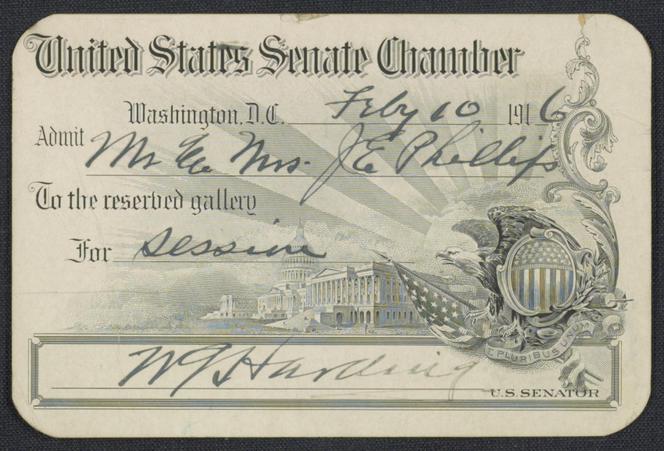


It was in the middle of an American election campaign: The Republican Party had put the mistress and her husband on an ocean liner for a cruise to China and Japan and donated between $20,000 and $25,000 (between $325,000 and $405,000 today). The lover, for his part, promised to pay $5,000 a year for as long as he remained in office.
This wasn't about Donald Trump, who paid porn film actress Stormy Daniels $130,000 in the middle of the 2016 presidential campaign to buy her silence about an alleged sexual relationship. It was Warren Harding (1865-1923), a Republican elected to the White House in 1920 and regarded in numerous rankings as one of the worst American presidents.
Harding is the first president known to have bought the silence of a mistress. A senator from Ohio, he was nominated by the Republican National Convention in the summer of 1920, after a series of internal dealings in which the favored candidates failed to win. Being from Ohio, like his Democratic rival, gave the Republicans hope of winning this key state, and his supporters said he "looked like a president." But in the wake of his nomination, Harding informed the party of the existence of a troublesome mistress.
Having known Harding since 1905, Carrie Fulton Phillips had asked him, unsuccessfully, to divorce his wife. Pro-German, she had returned to the United States from Berlin after the declaration of war and threatened to reveal her affair if her lover, then a US senator, voted to enter the war with Germany – which he did anyway. She risked derailing the election of the Republican, whose libido was legendary. "It's a good thing I'm not a woman. I would always be pregnant. I can't say no," he once told the press, according to congressional records. Above all, Phillips' pro-German sympathies, which she shared with her husband, led to fears that she was a spy.
With the troublesome one far away, Harding was elected with 60% of the vote, compared to 34% for his Democratic opponent, James Cox, chosen on the 44th ballot at the Democratic National Convention, with a certain Franklin Delano Roosevelt on his ticket. The third candidate, socialist Eugene Debs, garnered just 3% of the vote. His past came to the fore when the press wondered if Trump could campaign from prison. It's possible. In 1920, Debs was two years into a 10-year prison sentence for organizing an anti-conscription campaign. As it happens, Harding would later commute his sentence.
The president-elect wanted to put an end to the Progressive Era of Democrat Woodrow Wilson (1913-1921), who had been paralyzed by a stroke and was the first president to travel to Europe, where he negotiated the Treaty of Versailles and the creation of the League of Nations. Under Harding, after the World War, the Bolshevik revolution and the Spanish flu, it was time for a return to normal. "America's present need is not heroics, but healing; not nostrums, but normalcy; not revolution, but restoration; not agitation, but adjustment; not surgery, but serenity; not the dramatic, but the dispassionate; not experiment, but equipoise; not submergence in internationality but sustainment in triumphant nationality," he insisted.
You have 37.96% of this article left to read. The rest is for subscribers only.
